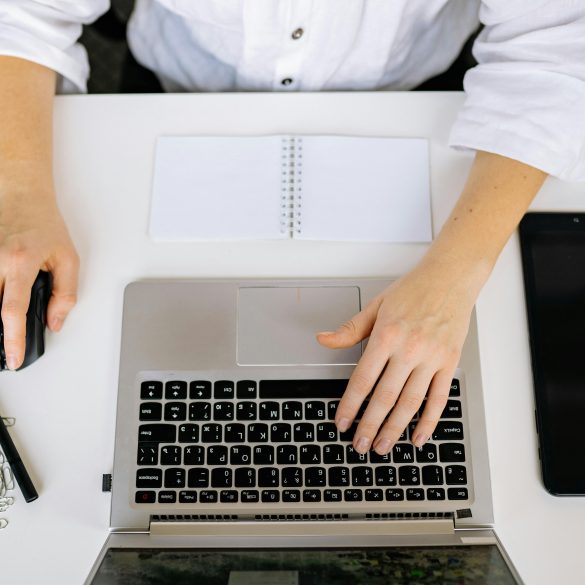Gambia’s Simple Online Safety Guide: 7 Steps for Smartphone Users
Let me start with a story. A friend of mine in Serekunda—let’s call him Musa—called in a panic last month. His phone, a basic Android, kept popping up strange ads, and some of his contacts received scam messages appearing to come from his WhatsApp. “What did I do wrong? I only use Facebook and WhatsApp—nothing else!” Musa’s experience isn’t unique. I’ve spent years working with Gambian families and small businesses, and time after time, I see the same thing: digital trouble rarely starts with ‘big’ hacking. It’s the everyday, little habits we overlook—unlocking a link in a group chat, not updating the phone, or sharing too much information with new contacts. The result? Real financial losses, privacy breaches, and hours of headache. Having helped everyone from school kids in Brikama to market traders on their first smartphones, I can promise: Simple online safety doesn’t have to be complicated—or expensive. It’s about thinking ahead, trusting your instincts, and building a few, rock-solid habits. And in The Gambia—where mobile data is precious and our smartphones are lifelines—these habits matter more than ever.
Mobile internet usage in The Gambia has skyrocketed, with over 65% of Gambians now accessing the web mainly via smartphones1. That means your phone is now your bank, your news hub, and often your community lifeline. Wise digital habits are more important than ever before.
Why Online Safety Matters in Gambia
Here’s the simple truth: in The Gambia, more people than ever rely on smartphones for virtually everything—browsing the news, sending money, arranging business, even keeping up with friends and family abroad. Yet, for every leap in digital convenience, there come new types of risk. Most of us grew up in an era before online banking or mobile money. Now, a single careless tap or unguarded password can open the door to all sorts of trouble—a fake loan app that drains your cash, a “friend” who tricks you into sending your account code, or a scam message that reels in your entire contact list. What’s worse, many digital attacks target exactly those users who think, “Oh, nobody’s interested in my phone.” But the reality? Cyber-criminals are opportunists—they go for the easy targets, the everyday smartphone users, and those unlikely to report or even notice small, ongoing losses2.
The most common scams and hacks in The Gambia aren’t sophisticated—they succeed because of everyday mistakes, not advanced hacking tricks. I see this all the time in my work: friends forward malware without knowing, or skip basic updates because data’s expensive. Small changes = massive protection.
Understanding Digital Threats: The Gambian Context
Let’s break it down—I want you to have a solid sense of what’s really out there, but without drowning in tech jargon. When I do training sessions in Banjul or Farafenni, these are the threats people most often ask me about:
- Phishing: Fake messages or websites that “fish” for your passwords, bank details, or codes—usually on WhatsApp or SMS3.
- Social engineering: Tricks using trust—like a message pretending to be from a cousin or a business partner, asking for “a small favor.”
- Malware/adware: Apps or files that sneak onto your phone to steal data, display ads, or even lock you out of your phone.
- SIM Swap: Someone hijacks your phone number through your mobile provider—suddenly, you’re locked out of everything.
- WiFi snooping: Connecting to free public hotspots (often in cafes or schools), someone else can “listen in” on your messages and transactions if you’re not careful.
- Account takeovers: If your password is leaked, one small app compromise can lead to your Facebook, email, and money apps being hijacked.
Scary? It can be. But having helped parents, shopkeepers, and university students who barely use the internet besides WhatsApp, I can tell you—most of these issues come down to a few simple, repeatable mistakes. And to be honest, I’ve made them myself (more than once in my early digital journey!). The goal here isn’t to make you paranoid—it’s to put power back in your hands with routines that genuinely protect you and your loved ones.
When a major SIM swap attack hit a community leader in Bakau, the fallout was immediate: money disappeared, sensitive chats leaked, trust in technology shaken. It all traced back to a “friendly” phone call and a five-digit number shared too quickly. Real change begins with personal vigilance.
The 7 Simple Steps: Everyday Habits for Online Safety
I’ll be completely honest: When I first started helping folks clean up smartphone messes, I tried to fix everything with “big words”—antivirus, firewalls, blah blah. Eventually, I realized: most people—and I include myself here—just want straightforward, repeatable steps that work, even if you’re juggling a busy life or slow data. So, here are my 7 favorite everyday safety habits that I now share with every new smartphone user in The Gambia. No nonsense, no complicated tech:
- Lock Your SIM & Phone. Always set a PIN for both—never rely on “swipe to unlock.” Why? If you lose your phone, someone can take over your mobile money, WhatsApp, and more in minutes. I learned this the hard way in 2018 when a colleague’s unlocked phone led to a week of headaches for his family.
Quick tip: Change your default PIN—never use “0000” or “1234.” - Beware of Strange Links & Apps. Don’t trust random links in WhatsApp groups, DMs, or Facebook posts—even if they’re “from a friend.” Most malware in The Gambia arrives via “harmless” links. If you’re unsure, ask the sender, and, honestly, just skip it if you have a bad feeling.
Delete unused apps: Many cheap Android devices come with pre-installed “gifts” you don’t need—and yes, they can spy on you. - Turn on Automatic Updates When Possible. I get it—data is expensive, and updates are a pain. But outdated phones are open doors for hackers. My advice after seeing dozens of infected phones at the Serekunda Market: schedule updates for the night when WiFi’s available.
Clarification: You don’t have to update every app daily, but do let the system—the main software—update monthly. - Use Strong, Unique Passwords. Never use your phone number or “password123” for any account. Choose simple phrases with numbers, like “Brikama2024!” or “FishMarket#88.” Yes, it can be annoying, but jot it down in a small, hidden paper notebook if you must. What’s vital is no reusing one password everywhere.
- Protect Mobile Money & Banking Apps. Never share your PIN, code, or SMS token with anyone—even your closest friend or a so-called “bank agent” over the phone. Real financial institutions never ask this way.
Personal admission: Even I almost fell for a fake “account verification” call late one night when tired. It happens to the best of us—don’t be too proud to double check! - Use WhatsApp Privacy Settings. Set your Last Seen, Profile Photo, and Status updates to “My Contacts” or “Nobody.” If someone new adds you, be careful before accepting. The same goes for “forwarded” audio files and videos—they can hide viruses.
- Think Before Sharing Personal Info. Before posting your number, home address, or daily routines online, pause. Ask: Is this really necessary? The more you share, the easier it is for someone to target you.
A mistake I still see: Sharing pictures of bank cards on Facebook to celebrate, or posting account details after a payment is received. Just don’t.
Treat your smartphone like your house: Lock the doors (PIN), avoid letting strangers in (ignore dodgy links), don’t leave valuables lying around (limit data sharing), and do a regular check-up (updates). Honestly, when you look at it this way, online safety starts to feel less intimidating.
Extra Tips: Beyond the Basics (But Still Easy!)
- Avoid public WiFi for banking if possible—wait until you’re at home, or use mobile data for sensitive uploads4. (Yes, I’ve caved before and always regretted it.)
- Set up a “find my phone” feature—most cheap Androids support a basic version. Test it before you lose your device!
- Review your app permissions: If a flashlight app wants camera or contacts access, uninstall it. This is a common trick for spyware.
- Delete old, unused accounts. Still have a Yahoo or Hi5 account you opened in 2009? Close it—it’s probably on a hacker’s list by now5.
- Talk about safety with family—kids and elders are often the easiest targets for scammers.
In The Gambia, telecom providers like Africell and QCell have set up SMS hotlines to report fraud or suspicious activity. Save these numbers—reporting helps improve everyone’s security6. Example: If you receive a suspicious mobile money request, reply “FRAUD” to the provider’s alert number.
Visual Quick-Start: Safety Habit Checklist
[INFOGRAPHIC: “Gambia’s 7 Daily Online Safety Habits” – Secure your device / Think before you click / Update regularly / Use strong passwords / Protect your finances / Control your privacy / Share wisely]

Common Questions from Gambian Smartphone Users
Back when I started running community tech clinics, I kept hearing the same questions—and you probably have too. Let me address the most common ones I hear during mobile safety workshops in Kombo and upriver towns:
Nope! In fact, budget phones are often most at risk, because they’re less likely to receive security updates, and sometimes come with apps that aren’t vetted7. I’ve seen phishing work on everything from old Nokias to new Samsungs.
- “Is it safe to use mobile money?” — Yes, but only if you never share your PIN or codes and only use the official app (check the provider’s website for the download link, not random WhatsApp groups). Mobile money fraud is rising in West Africa8, but smart use goes a long way.
- “Do I really need a new password for every account?” — Ideally, yes. At minimum, use different ones for financial accounts vs. social media. If you must write them down, store the paper somewhere really, really safe.
- “Should I use antivirus apps?” — Mixed feelings here. Free apps often cause as many problems as they solve. Start with good habits first. If you use antivirus, choose ones recommended by trustworthy sites—not random links sent by friends.
- “Is WhatsApp end-to-end encryption enough?” — It helps, but it’s not foolproof. If someone gets hold of your unlocked phone, or you back up chats to an insecure Google account, messages can still leak.
Real-Life Examples: Gambian Stories of Digital Risks
- The Phishing Scam: A school teacher received a “GRA refund” message asking for mobile money details. She almost replied, but her daughter warned her just in time—these scams are rampant and constantly evolving.
- The WhatsApp Takeover: A student clicked “funny video” in a group chat. Minutes later, her account spammed all her contacts with the same link, infecting dozens more. Solution: Always confirm before clicking, and never download unknown files.
- The SIM Swap Trick: After a fake “network upgrade” call, a market vendor’s phone went dead. Her number (linked to her cash app) was in the hands of the scammer. Recovery took days, but regular SIM PIN and immediate action can limit damage.
Frequently Updated Table: Types of Attacks & How to Stop Them
| Attack Type | Typical Sign | Prevention | What to Do |
|---|---|---|---|
| Phishing | Odd SMS, fake links, urgent requests | Never click; confirm with sender | Block/report sender and warn friends |
| SIM Swap | Sudden network loss, new SIM message | Set strong SIM PIN; call provider at first sign | Contact provider and freeze accounts |
| Malware | Pop-up ads, slow performance | Avoid shady apps; update OS | Uninstall suspect apps, reset phone |
| Account Takeover | Can’t log in, contacts get spam from you | Strong, unique passwords; two-step verification | Change passwords, alert contacts |
About 60% of digital fraud cases reported in The Gambia over the past year involved SIM swap or social engineering scams targeting everyday users, NOT large companies9. This means individuals—just like you—are the main targets. Community vigilance is essential.
I used to give blanket advice—“just don’t click dodgy links”—but that’s not always realistic. We’re social, we’re curious, and (sometimes) we’re too polite to ignore a friend’s forward. Now, I suggest: Slow down, pause, and double-check before acting. It took me too long to learn this, and honestly, I still trip up occasionally.
Discussion Prompts & Next Steps
Pause for a second—think about the last time you nearly shared something risky online. Was it a product you’d won? An urgent transfer request? These small moments are where good habits start. Why not discuss with family tonight: “What’s the one online safety tip you think everyone should know in The Gambia right now?”
- Would you recognize a fake banking SMS?
- Who would you trust if a friend’s account went “weird?”
- Do you help relatives set up their phone security?
Final Words: Keep Learning, Stay Safe, and Help Others
Let me step back for a moment—don’t try to memorize everything at once. Think of online safety as a journey, not a test. I’ve seen seasoned techies get tricked and total beginners navigate scams with just common sense and a dose of skepticism. Take what resonates most for you. If you help one friend or auntie avoid a mobile money scam next week, you’re doing more than most global cybersecurity experts ever will for their own communities.
Don’t keep this wisdom to yourself. Show a schoolchild how to set a PIN. Help your parents update their messaging app. Warn your community WhatsApp group when a fake link does the rounds. The more we share—and act—the safer ALL of us become.
Referencias
Fuentes y lecturas adicionales



